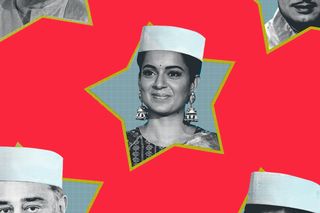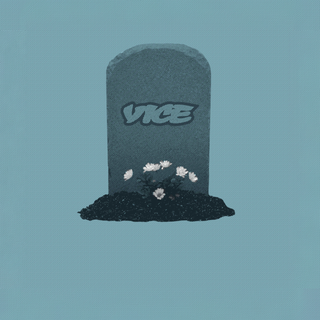
Stardom Is Dying. And Now, Even Politics Cannot Save It
The last generation of stars are selling out to politics -- but not in a way that actually works.

Celebrity culture has never been in more of a crisis. Last week, designer Manish Malhotra’s show featured actors Ranveer Singh and Kriti Sanon as showstoppers, both of whom praised the Prime Minister for his “Vikas Bhi Virasat Bhi” campaign in their speeches. This comes at the heels of the Ram temple inauguration in January, where celebrities like Alia Bhatt, Ranbir Kapoor, Ram Charan, Katrina Kaif, and many more gathered in Ayodhya to commemorate a monument built on a highly charged political battleground. The recent film Fighter, starring Deepika Padukone and Hrithik Roshan, was an unsubtle portrayal of the Pulwama military issue that prominently features in the ruling party’s talking points. And Ranbir Kapoor is set to star in a Ramayana trilogy, alongside playing Shiva in the Brahmastra series.
“This flurry of right-leaning films comes on the back of 10 years of increasingly conservative Hindi cinema. Secular overtures in commercial films—once as common an ingredient as song and dance—are less frequent now. Spy and war films boast of an aggressive “new India”. Dissenting voices have dried up,” notes Uday Bhatia in Mint Lounge. We’re officially in the age of Bollywood propaganda, as Sayandeb Chowdhury noted, and the biggest of stars are rushing to participate.
Cinema has always been inextricably linked to politics. It’s what the scholar Madhava Prasad calls cine-politics. “Cine-politics is a phenomenon independent of participation in electoral politics. It is a supplementary, virtual political regime all by itself. It may parasitically inhabit the parliamentary institutions but is not reducible to an effect of the latter,” notes Prasad in his book.
Today, we’re seeing a shift in how cine-politics plays out – perhaps brought about by a broader disenchantment with stars and stardom. Audiences aren’t resonating with actors as much as they used to, with many positing Shah Rukh Khan as the last of this country’s stars in the true sense of the term. Amid this, the shift to curry favor with a popular political party and imbibe its rhetoric is arguably stardom’s attempt at saving itself from its death throes.
Politics used to cement a star’s legacy forever – even until very recently. India, especially in the Southern states, has had a long history of actors turning to politics to keep their legacy alive – and grow it. Take M.G. Ramachandran (MGR), who founded the AIADMK party in Tamil Nadu in 1972 – the first major actor to do so. His stardom was built off of his portrayals of the savior of the working class and the poor in his films – an image that he leveraged into a political career and eventual chief ministership, as MSS Pandian points out in The Image Trap.
In the neighboring state of erstwhile unified Andhra Pradesh, N.T. Rama Rao turned his portrayal of various Hindu deities on screen into politics too: for many, his image was synonymous with that of the gods themselves. This helped him found the Telugu Desam Party in 1982, and he soon became the chief minister for three terms. According to NTR: A Political Biography by Ramachandra Murthy Kondubhatla, the star chose scripts with political overtones to enable this transition. NTR was the Kamma caste’s breakthrough into significant political power and representation in the state – one which continues till the present.
Decades later, actor Chiranjeevi’s entry into Andhra Pradesh politics represented the numerically strong Kapu community (who have long competed with the Kammas). While he was slated to be the next MGR or NTR, given his image as a sensitive yet powerful working-class hero on screen, his political venture failed to gather steam. Today, his brother Pawan Kalyan has taken up his mantle, albeit with a more expansive base: Kalyan’s fan base is regarded as one of the most dedicated in the industry, allowing him to ride on the impact of his moniker “Powerstar” even in politics.
Kamal Haasan, on the other hand, began his political career with a different sensibility: as a “class” hero, he positioned himself as a cosmopolitan progressive when he started the Makkal Needhi Maiam in 2018. Even actor Vijay recently announced his entry into politics. “Vijay's political ambitions have been carefully curated so far,” noted India Today, considering Vijay has always played the "saviour" in his cinematic career, never experimenting with anything far from it.
Who, and what, are stars? They’re people – icons – with a mythology around them, who give individuals a figure to project themselves on, and imagine themselves as part of a larger community or idea. In other words, what all these stars had in common that allowed them to transcend their existing fans – especially the ones who were successful – was expressing their politics as part of their stardom. “...MGR’s triumph cannot be attributed to his on-screen popularity independent of his political identification with the Dravidian movement,” notes M. Vijayabaskar. They also had a unique, identity-based calling card: MGR represented Dravidian politics, NTR represented the Kammas, Pawan Kalyan is for the Kapus, Kamal Hassan stands on a seemingly secular platform (though his refined, cosmopolitan image largely draws from his Brahmin identity).
What has changed now? Among the stars who haven’t yet entered politics but are participating in political art, none stand out as representing a particular community or ideal. Instead, they’re representative of the government’s vision for a “new” India – homogenized of all cultural differences and into one majoritarian identity. It’s cine-politics in the age of “pan-Indian” cinema. At their core, “pan-India”/propaganda movies and shows are all a project of homogenization: the ruling party has popularized the notion of One Nation, One Everything – meaning that stars today aren’t allowed to forge their own political alliances. The possibilities for expressing a political stance, it would seem, are narrowed to participating in the dominant political position alone.
This is a shift from what we’ve seen in the South, and it is symbiotic: the utilization of stardom serves to popularize an existing political party, and the allegiance to said party serves to bolster a star’s popularity. As sociologist Nathan Manning explains, “Politicians in many established democracies frequently try to present themselves as accessible, relatable and authentic individuals'' amid weakening trust in career politicians. In contrast, the popularity of actors among the masses is already well-established in the image of demi-gods. They are thus able to anchor their campaign within such an existing gap. But in capitulating to political strongarming, they are only vying to keep their relevance alive. In the age of the attention economy, relevance is a fleeting thing -- and is where true stardom goes to die.
Rohitha Naraharisetty is a Senior Associate Editor at The Swaddle. She writes about the intersection of gender, caste, social movements, and pop culture. She can be found on Instagram at @rohitha_97 or on Twitter at @romimacaronii.
Related


Vice Is Dead
